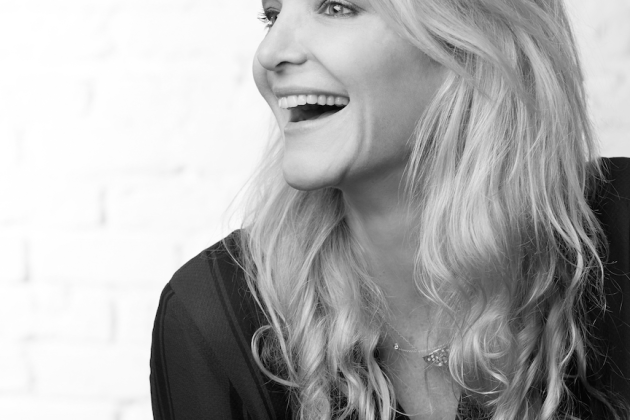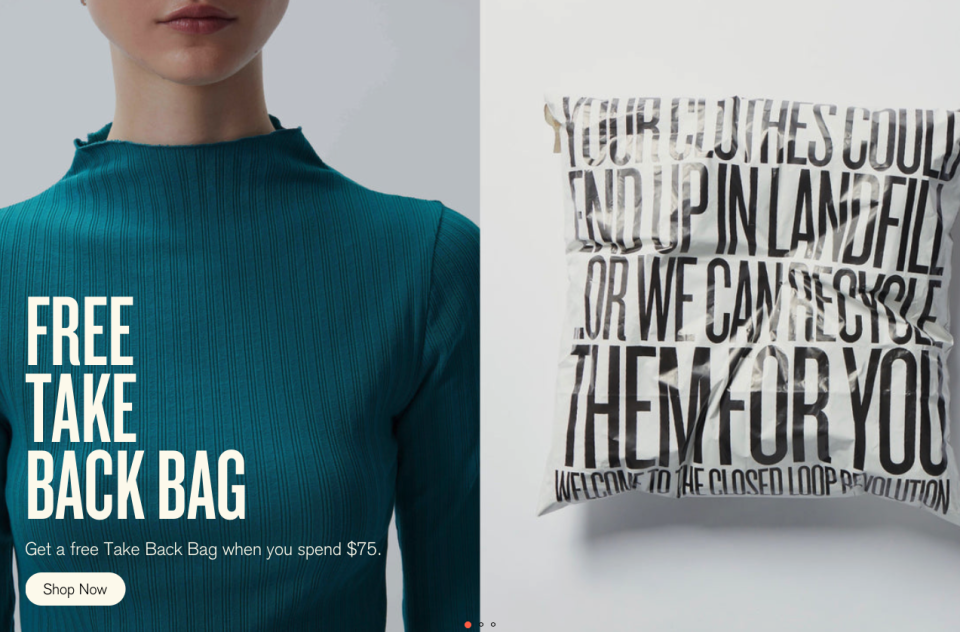Green People: For Days’ Kristy Caylor

While traditional brands may not account for what happens to goods after they leave their hands, there’s a very slim margin of error (or waste) at start-ups like basics brand For Days. Started by a former Gap Inc. veteran, For Days is one of few companies that prides itself on being a fully circular brand, meaning every aspect of its process is closed loop.
On its website, For Days boasts “100 percent recyclable clothing that never ends up in landfill” — but surely somewhere, somehow that can’t be true?
More from WWD
Though that particular question wasn’t answered this time around, WWD got the inside logic of For Days, speaking with founder and chief executive officer Kristy Caylor.
WWD: How is For Days demonstrating circular fashion at scale? Why is this mission personally inspiring to you?
Kristy Caylor: Circular fashion can be confusing, but we make it simple: Who doesn’t have too much stuff? Our Take Back Bag is an easy way for people to start participating in circular fashion. We accept any textiles, from any brand, in any condition, and recycle, downcycle, or resell them — keeping them out of landfills or incinerators. To date, we’ve saved over 1 million pounds of clothing from landfills through our Take Back Bag.
Having been in fashion for 15 years, I was deeply concerned by the amount of waste the industry generates. The linear model, in which we all participate, is profitable because we sell customers more and more and more. Businesses don’t take responsibility for the clothing put out into the world, and 85 percent of all clothing ends up in landfills: 50 billion garments per year. That’s why For Days is so committed to pioneering a new, circular model for fashion — where shoppers can responsibly clean out their closets and shop circular products that are designed to be fiber-to-fiber recycled.
WWD: Has the For Days mission lived up to its name in terms of customer loyalty?
K.C.: Customers stay within our circular system for a very long time, which is one of our primary objectives on the path to minimizing waste. For Days garments are designed to last and also to be returned to us and recycled. Our Closet Cash system helps incentivize circular behavior — our shoppers are rewarded when they shop circular products and when they return them to be recycled, which helps keep them in our circular system.
At the same time, we capture as much post-consumer waste as we can to channel it to a second life. We work hard to make sure circular behavior is incentivized, the recycling continues and the materials continue. Over and over again.
WWD: So what does a day in your life look like?
K.C.: I usually wake up right before or right after my little daughter, and the day is off to a great start if we get a cuddle and laugh in before things get going. I love to run first thing in the morning to center myself and get the blood flowing. Afterward, I will meditate and then dive into work. The day ends with family, always. We make dinner for our daughter, do a bath and bed, then sit down for a little relaxing moment. If I don’t have to finish up work before bed, I read. That’s my favorite way to end the day.

WWD: Outside of the industry, where do you find the most inspiration?
K.C.: Art, culture, science and other industries. My linear brain loves identifying patterns, connecting dots and learning. My creative brain loves immersing in others’ creativity.
WWD: Finish the sentence: The best money I ever spent was…
K.C.: …on great child care. Family is my first priority, and I am grateful to have an amazing support system that allows me to do what I do.
WWD: Where do you find motivation amid the ongoing climate crisis?
K.C.: I am an eternal optimist. I love hearing how others are committing to action and creating new solutions. There is so much passion and intelligence out there being put to work: together, we can do this.
WWD: What moment seemed inconvenient at the time but led to many great opportunities later on?
K.C.: COVID-19. That’s not new news, but we had a lot of adjustments that were already in motion when COVID-19 hit. Factory shutdowns, shipping disruptions and general uncertainty forced us to focus on our long-term objectives. It also gave us the freedom to rethink strategy, physical locations and team dynamics. In the end, this hurdle probably sped up our progress.
WWD: What’s the best advice you ever received?
K.C.: I had a sixth grade teacher, Mr. Westol, tell me, “It can be lonely at the front of the pack, so get used to it and keep going.” At the time, he was talking about my superior math skills and fast track times. But it is so relevant in entrepreneurship and particularly when you are ahead of the curve in creating new systems.
When I was first starting For Days and explained my vision for a circular economy, most people shot a blank stare back and said, “a circular what?” After the 10th time, it can be easy to think, “Maybe this is too soon. Maybe the world isn’t ready. Maybe I’m the only one who sees this.” But I stayed the course, kept reading the bigger signals, and knew that being ahead was going to be uncomfortable and lonely at times but was also essential to winning.
WWD: Let’s say you have a For Days fashion show. Who is seated in the front row?
K.C.: Paul Polman [Dutch businessman, former Unilever CEO] — an absolute inspiration to me.


